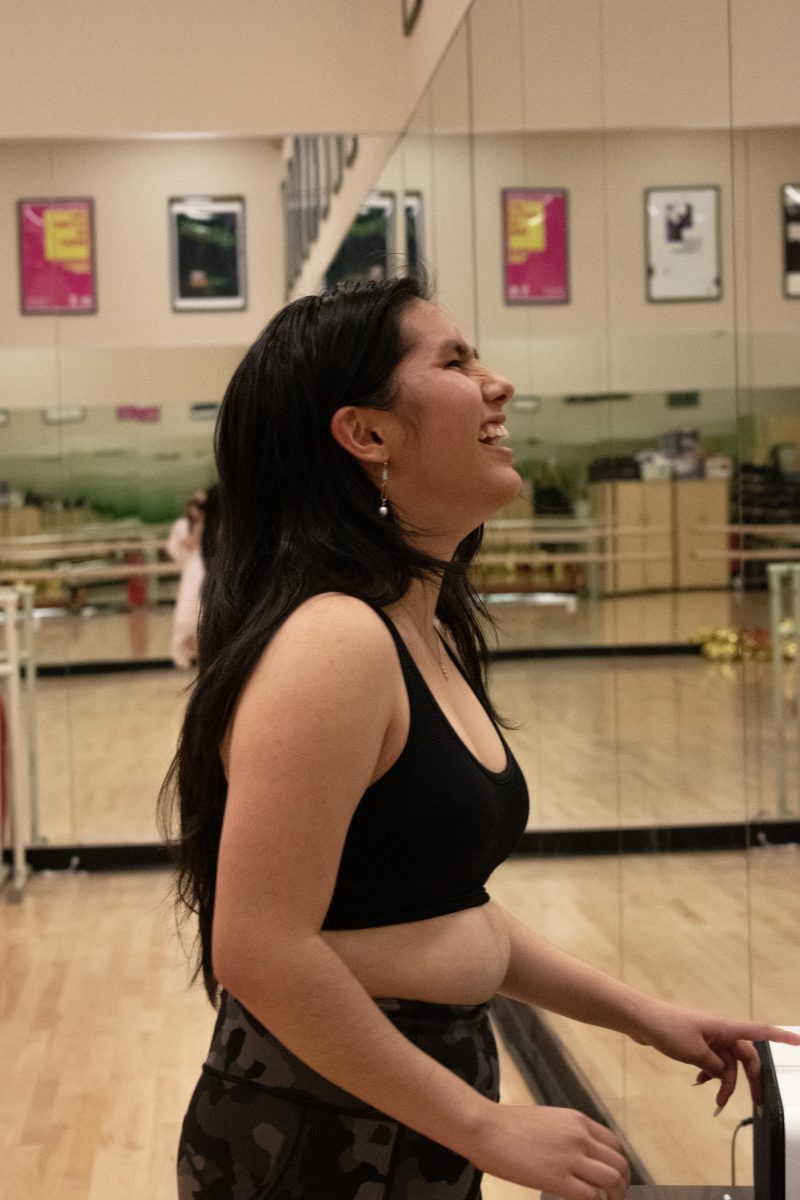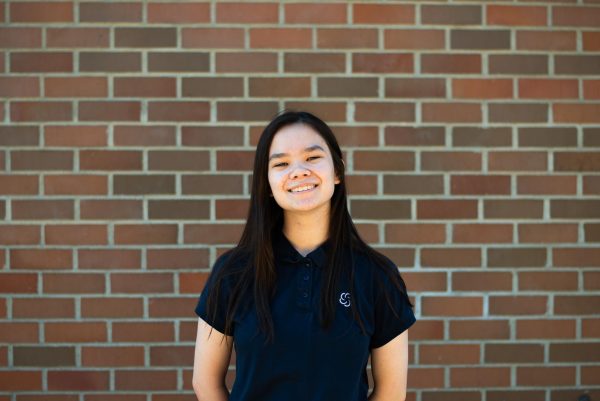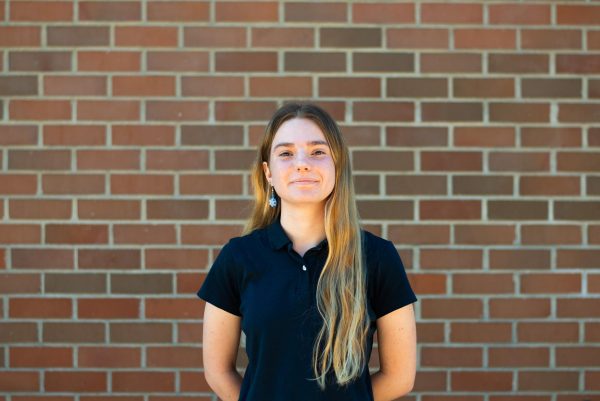As the weeks tick down to Winter Break, Castilleja college counseling’s deadline for seniors completing college applications — Dec. 15 — looms large in students’ minds. For many, essays, interviews and the myriad other elements of the college process are top of mind.
Students applying to specialized arts programs, however, have more to think about. With additional supplementary materials, increased selectivity, longer college lists and earlier deadlines, the process is complicated at best.
“Applying for performing arts is just a trip,” said Carolinda Silva ’24, who intends to study musical theater.
Along with the traditional college application — including academic history, extracurricular activities, letters of recommendation and essays — VPA applicants typically must submit supplements specific to their art form.
These supplements could include pre-screen video auditions, supplementary essays or letters of recommendations from arts coaches or mentors.
“It is almost as though they have two application processes going on at the same time for each of their colleges,” said Gabrielle McColgan, Director of College Counseling and one of Castilleja’s two college counselors.
Despite the increased workload, many VPA applicants apply to far more than nine colleges — the typical recommendation made by Castilleja’s college counselors. By November, Silva had applied to 12 schools out of 26.
“For the most part, most of these selective art and performing art programs tend to be more selective than even the most selective schools that Castilleja students are looking to apply to,” McColgan said.
Specialized arts programs can admit classes of as few as nine students a year, according to McColgan. “I go to a mid-size program, and that’s 32. That’s mid-size. Small is like, 12,” said Emma Holmes, a Casti ’23 alum who currently attends the CAP21 Conservatory at Molloy University for musical theater.
With the support of her college counselor, Holmes applied to 26 colleges.
“We usually recommend that students have a slightly longer list to increase their chances of being invited to audition, being invited to go through the full application process,” McColgan said. “‘No more than nine’ — you know our mantra — doesn’t usually apply for our students applying to selective visual and performing arts programs.”
These programs’ hyper-selectivity can lead to seemingly subjective admissions. “If the school already has four brunette sopranos, you’re kind of out of luck,” Holmes said. “This is the case for all schools — you don’t know what they’re always looking for.”
“I’d get rejected and I’d be like, ‘why does everyone hate me?!’ But a lot of it is just out of your control,” Holmes said.
That’s not to mention the accelerated timeline VPA applicants must adhere to. “The deadlines tend to be a lot earlier, especially if there’s a pre-screen audition to get offered an audition,” McColgan said. “Often, a student may have ten or twelve or fifteen applications due by early November.”
“It is work intensive,” McColgan said. “Most students who are going down this path find that it is best to get a lot of this work done over the summer before senior year.”
Holmes completed all of her college essays within the first two weeks of her senior year. “It was kind of weird,” she said. “I always felt that I was on a different timeframe than everyone else.”
Students agreed that, as a college preparatory school, they felt Castilleja’s focus is more academic than artistic. Holmes said she only knew of two Casti students who applied to audition-based theater programs before her.
“If I was in a bigger school, or at a performing arts school, I totally would have known what I was getting into,” Holmes said. “I’m really glad I went to Casti, but because Casti has so few people apply every year, it’s not something that’s talked about as much.”
Claire Wong ’24, who uses the pronouns he, she and they, said they found Castilleja’s academic focus reflected in programming like Global Week, which they said tended to focus on STEM or DEIJ topics.
“We’re small,” McColgan said. “It’s hard to be excellent at everything as a school, but I think we do it pretty impressively considering our size.”
McColgan added that she began her admissions career at a music conservatory, and both she and Alyson Tom, Castilleja’s other college counselor and Assistant Director of College Counseling, have extensive backgrounds in vocal music — all of which can be an asset in guiding VPA applicants.
VPA applicants still often seek support from external sources. “I’m lucky enough that I had friends who went through the process who were like, ‘OK, Claire, let me talk to you for three hours about how this actually works,’” Wong said.
“The great thing about theater applications in general is that the way it happens, you often get to meet other young performers,” Wong said. “Especially in an environment like Casti, it’s great to find another environment where everyone has sort of the same goals or has the same interests as you.”
Similarly, Holmes said she found working with an external college audition agency “really helpful,” and Silva shared she has an “unofficial coach” and participated in The College Audition Conservatory, a summer audition preparatory program.
“What we find is that students who are this serious about their art are studying their art very seriously both at Castilleja and outside of Castilleja,” McColgan said. “So they also have the support of their private teachers and their private coaches outside of Castilleja who are very much their mentors in this process as well.”
To younger students interested in pursuing the arts in higher education, McColgan recommended getting as much experience in their art form as possible—exploring multiple media as a visual artist, or studying theory, musicianship, and performance as a musician. “Build your skillset,” she said. “Whatever it is that you do, you want to do it at the highest level you’re able to do.”
McColgan also emphasized the value Castilleja’s arts faculty can bring to students interested in the arts. “Take full advantage of knowing your VPA teachers at Castilleja and benefiting not only from what they have to teach you but from what their path has been to inspire you to see all the different ways you might move forward in the arts,” she said.
For students who are interested in the arts, but ambivalent about committing to one discipline for higher education, their options are still open. “There’s no one path,” McColgan said, highlighting the diversity of schools attended by professional Broadway actors. “The vast majority of the colleges that Castilleja students apply to are what are called liberal arts colleges that allow students to explore disciplines from photography to physics to everything in between,” she said.
“If you’re undecided at Castilleja, that’s okay. There’s still many, many wonderful schools out there for you where you’re going to be able to pursue what you love to do,” McColgan said.
“If you want to do theater, or like any performing arts, definitely do it. Because why would you want to spend your life being sad?” Holmes said. “Start early. And understand what you’re doing before you do it. But still do it.”




